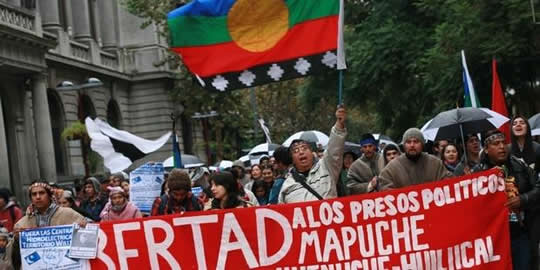




The Chilean authorities must initiate a thorough, independent investigation into the police use of force during and after an eviction that resulted in a dozen Indigenous community members – including children – being detained, with many suffering injuries, Amnesty International said.
On 23 July, police officers (carabineros) reportedly moved in to evict a group of Mapuche Indigenous people who a day earlier had occupied a plot of agricultural land in Ercilla – 600 km south of Santiago – as part of an ongoing protest to reclaim their traditional territory in Chile’s Araucanía region.
According to reports, 12 Mapuche Temucuicui community members – including women and children – were taken into custody, with several injured after police fired buckshot and used tear gas during the eviction. At least four other Mapuche children were injured when police fired buckshot at demonstrators who had gathered outside Collipulli Hospital, where their injured friends and family members had been taken.
“The accounts from the forced eviction in Ercilla point to a possible disproportionate use of force by the police, and the reports of children being injured by police firing buckshot into the crowd outside the Collipulli hospital are especially worrying,” said Maria Jose Eva Parada, Researcher in the Americas Programme at Amnesty International.
Following the eviction, Chilean President Sebastián Piñera reportedly said that the incidents would be investigated, and that although his government supported the police force “100 per cent”, they would not be allowed to act outside the framework of the law.
“The investigation into the incidents must be thorough, impartial and independent and, if it finds that police overstepped the boundaries of the law, those responsible must be brought to justice,” said Maria Jose Eva Parada.
Numerous Mapuche Indigenous communities across southern Chile have long protested to have their traditional territories restored to them.
A day after the eviction in Ercilla the authorities responded by publishing a “Special Security Plan for the Araucanía Region” which aimed at combating criminal activity in the course of the protests. However, the Mapuche Indigenous people territorial claims remain unresolved.
“Whatever measures are taken to tackle social conflicts arising from Mapuche ancestral land claims in the Araucanía, human rights must be respected,” said Maria Jose Eva Parada.